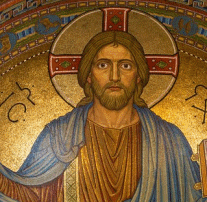silverglass
Wycliffe's Attitude toward speculation
Wycliffe's fundamental principle of the preexistence in thought of all reality involves the most serious obstacle to freedom of the will; the philosopher could assist himself only by the formula that the free will of man was something predetermined of God. He demanded strict dialectical (In classical philosophy, dialectic (Greek: διαλεκτική) is controversy: the exchange of arguments and counter-arguments respectively advocating propositions (theses) and counter-propositions (antitheses). The outcome of the exercise might not simply be the refutation of one of the relevant points of view, but a synthesis or combination of the opposing assertions, or at least a qualitative transformation in the direction of the dialogue.[1][2] The presupposition of a dialectical dialogue is that the participants share at least some meanings and principles of valid inference, even if they do not agree.) training as the means of distinguishing the true from the false, and asserted that logic (or the syllogism) furthered the knowledge of catholic verities; ignorance of logic was the reason why men misunderstood Scripture, since men overlooked the connection – the distinction between idea and appearance. Wycliffe was not merely conscious of the distinction between theology and philosophy, but his sense of reality led him to pass by scholastic questions. He left aside philosophical discussions which seemed to have no significance for the religious consciousness and those which pertained purely to scholasticism: "we concern ourselves with the verities that are, and leave aside the errors which arise from speculation on matters which are not."
The Council of Constance declared Wycliffe (on 4 May 1415) a stiff-necked heretic and under the ban of the Church. It was decreed that his books be burned and his remains be exhumed. The latter did not happen until twelve years afterward, when at the command of Pope Martin V they were dug up, burned, and the ashes cast into the River Swift, which flows through Lutterworth.
Tyndale did not think of proving the divinity of the Bible by learned dissertations. ‘Scripture derives its authority from Him who sent it,’ he said. ‘Would you know the reason why men believe in Scripture? It is Scripture. — It is itself the instrument which outwardly leads men to believe, whilst inwardly, the spirit of God Himself, speaking through Scripture, gives faith to His children.’
Burning Wycliffe's bones, from John Foxe's Book of Martyrs (1563)
Wycliffe's fundamental principle of the preexistence in thought of all reality involves the most serious obstacle to freedom of the will; the philosopher could assist himself only by the formula that the free will of man was something predetermined of God. He demanded strict dialectical (In classical philosophy, dialectic (Greek: διαλεκτική) is controversy: the exchange of arguments and counter-arguments respectively advocating propositions (theses) and counter-propositions (antitheses). The outcome of the exercise might not simply be the refutation of one of the relevant points of view, but a synthesis or combination of the opposing assertions, or at least a qualitative transformation in the direction of the dialogue.[1][2] The presupposition of a dialectical dialogue is that the participants share at least some meanings and principles of valid inference, even if they do not agree.) training as the means of distinguishing the true from the false, and asserted that logic (or the syllogism) furthered the knowledge of catholic verities; ignorance of logic was the reason why men misunderstood Scripture, since men overlooked the connection – the distinction between idea and appearance. Wycliffe was not merely conscious of the distinction between theology and philosophy, but his sense of reality led him to pass by scholastic questions. He left aside philosophical discussions which seemed to have no significance for the religious consciousness and those which pertained purely to scholasticism: "we concern ourselves with the verities that are, and leave aside the errors which arise from speculation on matters which are not."
The Council of Constance declared Wycliffe (on 4 May 1415) a stiff-necked heretic and under the ban of the Church. It was decreed that his books be burned and his remains be exhumed. The latter did not happen until twelve years afterward, when at the command of Pope Martin V they were dug up, burned, and the ashes cast into the River Swift, which flows through Lutterworth.
Tyndale did not think of proving the divinity of the Bible by learned dissertations. ‘Scripture derives its authority from Him who sent it,’ he said. ‘Would you know the reason why men believe in Scripture? It is Scripture. — It is itself the instrument which outwardly leads men to believe, whilst inwardly, the spirit of God Himself, speaking through Scripture, gives faith to His children.’
Burning Wycliffe's bones, from John Foxe's Book of Martyrs (1563)


